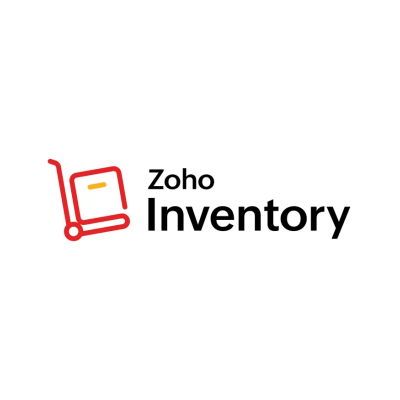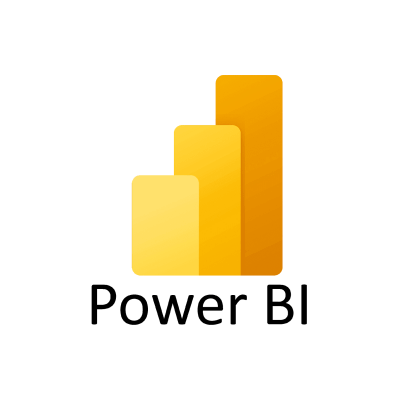12 B2B Apps that ECommerce Business Owners Should Use
The e-commerce industry is expanding in this fast-paced digital world. The way of conducting business has changed to an online setting. Now, enterprises focus on launching their websites or using online B2B apps to run their business in a more structured way. Signing up on e-commerce platforms is not how you will gain success in the industry.

You need various tools to stay competitive in the market. Whether looking to source products, manage inventory and logistics, or communicate with suppliers, using the right B2B commerce app to achieve the specific business goal is crucial. We have assembled a list of 12 must-have online B2B apps built exclusively for e-commerce businesses.
Trends and Stats in B2B E-commerce Industry
GlobeNewswire said the global e-commerce market was valued at 19.34 trillion USD in 2024. By 2025, it is expected to reach 47.54 billion USD, with a CAGR of 16.17%. B2B marketplaces are expanding and gaining recognition in the business world, as these platforms are an easy way to enter the global business world in various industries.
The e-commerce industry is dynamically growing thanks to technological advancements and changing consumer behavior. The following are the trends most influential in transforming the e-commerce industry.
The world is now running on mobile phones and tablets because these devices are compact and easy to use. According to multiple reports, businesses are making mobile-friendly apps because people use mobile phones more than any other device. Everything is done through mobile phones. So, e-commerce companies must make their websites mobile-friendly, which is essential for business growth.
AI and machine learning are the latest innovations implemented in the e-commerce industry. Now, online B2B or B2C platforms integrate AI into their websites, which consists of data analytics. B2B mobile apps have integrated AI technology to make them more functional and practical.
Social commerce has gained popularity. Platforms like Facebook, Instagram, and TikTok have become significant sources of revenue for companies that post their products on these platforms. Because of high user engagement on these platforms, companies can communicate and showcase their products directly to end users.
12 Must-Have B2B Apps for E-Commerce Business Owners
Explore the list of various b2b apps for your e-commerce business.
Sourcing & Supplier Management
1. Tradewheel.com

Tradewheel.com is the leading online B2B trading platform that connects buyers with verified suppliers. It has one of the best B2B apps for ease of use by sellers and buyers. The website is easy to use and equipped with advanced tools and equipment, making product buying and selling easier. Here, sellers can access the list of hundreds of buyers through the massive buyer’s directory. The website deals with buying and selling various products across different industries, from electronics to automotive, home appliances, apparel, etc. Business owners can negotiate the products’ prices and explore multiple opportunities to make their business successful.
2. Alibaba

Alibaba is one of the oldest and most trusted online B2B e-commerce websites. It has already introduced its B2B commerce apps for payment and order placement. The platform is known for its advanced product directory. Here, a seller can find private-label buyers for branded products. You can offer deals and discounts to bulk buyers here. Most companies here sell products at wholesale rates.
Communication & Collaboration
3. Slack

Slack is an online messaging app that enhances business communication and collaboration between buyers and sellers. It is one of the best business apps for effective communication. The e-commerce platform is used for internal communication, but project management and accounts on platforms like Trello, Google, Shopify, etc., can be managed through this comprehensive website. This app lets you have real-time messaging with your partners and share business files quickly and easily with just a single click.
4. Zoom

Zoom is leading video conferencing platform e-commerce businesses use to conduct virtual meetings with team members, suppliers, and partners worldwide. It is one of the most used b2b mobile apps for online meetings. It supports HD video, screen sharing, webinars, and recording features, enabling effective collaboration across time zones. E-commerce sellers benefit from Zoom’s reliability, user-friendly interface, and scalability, whether for internal planning or supplier negotiations.
Inventory & Order Management
5. Zoho Inventory

Zoho Inventory is a cloud-based inventory management software that helps e-commerce businesses manage real-time stocks, sales, and purchases. The app syncs seamlessly with platforms like Amazon, Tradewheel, eBay, etc. This software app lets you keep your inventory in check across various channels. This advance can perform multiple tasks, including order automation, barcode scanning, and detailed reporting, so you can never go out of stock and run your business smoothly.
6. QuickBooks Commerce

QuickBooks Commerce is also known by its previous name, TradeGecko. The platform is designed to efficiently manage your inventory, order, and customer data. Through this app, you can keep track of your stock levels, automate reordering, and integrate with other platforms for the smooth running of your business. QuickBooks is your top choice if you want to expand your online store and are looking for apps with automation capabilities, financial integration, and intuitive dashboard features.
Marketing & CRM
7. HubSpot CRM

E-commerce sellers looking to manage leads and improve customer engagement will find HubSpot CRM beneficial. It combines all essential customer details, sales progress, and email marketing information. Marketing automation from HubSpot allows sellers to communicate with buyers personally, boost retention, and increase business growth.
8. Mailchimp

Mailchimp helps online businesses design, schedule, and study email campaigns. Its drag-and-drop building, variety of templates, and customer segmentation allow sellers to craft messages that encourage more people to buy. It also works with Shopify and WooCommerce, which means promoting products and checking campaign results is simple.
Analytics & Insights
9. Google Analytics

Google Analytics is important for businesses selling online to learn how users interact, track their website activity, and check how their marketing works. It gives you details about your visitors, how many convert, and the stages of your sales process. With Google Analytics, sellers have the data they need to make decisions that boost site performance, keep users happy, and increase their return on investment.
10. Power BI

With Power BI, e-commerce businesses can easily view and analyze information from different sources. You can use custom dashboards, get live updates on data, and access strong reporting tools. With Power BI, sellers can track the progress of KPIs, notice developing trends, and use this to shape their growth plans. It proves helpful for sorting out complicated data from different sales and marketing areas.
Shipping & Logistics
11. ShipStation

ShipStation is a tool that streamlines how e-commerce companies ship their products. It links with major marketplaces and shopping carts, so merchants can import orders, compare shipping options, print labels, and check the status of their shipments from the same place. With ShipStation, there are fewer shipping mistakes, you pay less for postage, and items reach customers more quickly, making them happier.
12. AfterShip

AfterShip is a solution that enables e-commerce stores to update customers about shipments in real-time. The system works with more than 900 carriers worldwide, automating email tracking, providing custom tracking pages, and notifying customers about their deliveries. Thanks to its transparency and post-purchase information, AfterShip helps businesses deliver a better customer experience and fewer support issues about order status.
Benefits of Using the Right B2B Tools
Using the apps mentioned above will benefit e-commerce businesses immensely. Check out the below-mentioned benefits.
- 1_Using e-commerce inventory management apps like Zoho Inventory and QuickBooks Commerce performs tasks like data entry, order tracking, inventory update, etc, automatically saving your time and maximizing business efficiency.
- 2_Apps like HubSpot CRM or Mailchimp help you scale customer engagement by performing automated tasks like follow-ups, segmenting buyers, running targeted campaigns, and personalizing communications. These apps can increase your conversion and customer retention rates.
- 3_ShipStation or Zoho Inventory apps are centralized platforms for managing your business across multiple channels. Operations like order placement and fulfillment are done through such apps.
- 4_Google Analytics and Power BI are best for learning your customer behavior, market trends, and supply chain performance in real-time. These apps allow you to meet market demands quickly and smartly scale your business.
Two Common Mistakes eCommerce Owners Make
E-commerce owners are sometimes the leading cause of constantly failing in their business because they use outdated methods that do nothing but harm your business. Some common mistakes can hinder your business success with possible solutions.
- Managing supply chains through spreadsheets can become challenging after a certain point as you decide to grow your product line, so for that, use Zoho Inventory or Tradewheel.
- E-commerce businesses usually do not keep track of their communication with buyers, or if they do, they rely on emails and phone calls only, which can cause them to lose sales opportunities that use Slack or Hubspot CRM, as these apps enable them to track chats with clients.
Conclusion
If you are into the e-commerce business and are looking for specific apps to improve your business sales that can manage your shipping and logistics, provide you with analytics and insights, help you with product sourcing or supply chain management, or any such task fulfillment, then keep reading this blog. Here, we have discussed the top online apps that e-commerce business owners should use for seamless business procurement and procurement.
About the Author

Ayesha Zahid is a content writer with 1.5 years of experience. She creates engaging and result-driven content across different niches. Focusing on delivering clear and meaningful writeups, she targets the primary audience, which results in high traffic and conversions.






